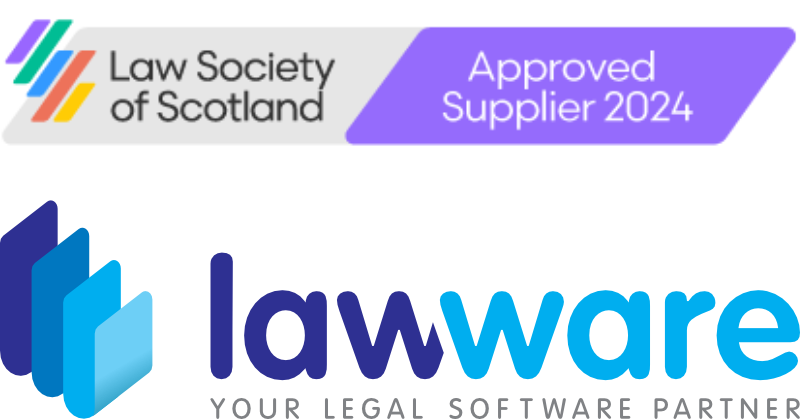
Maintaining legal compliance for small and medium-sized practices isn’t getting any easier. You only have to take a look at what has come into force over recent years and what is likely to be in the pipeline going forward.
We’ve seen the introduction of both the EU’s GDPR regulations and HMRC‘s Making Tax Digital. There’s more to come which will likely include further changes to the SRA‘s accounts rules. This all increases the burden of work for your practice and, as we all appreciate, non-billable work reduces efficiency and ultimately profitability.
So, when it comes to legal compliance, is your legal software up to the job?
What is the minimum requirement?
You’ve probably come across cases of a software supplier being unable to meet the demands of The Law Society of Scotland’s Accounts Rules. As rules and regulations change, software must adapt and change. So, the real minimum requirement is a supplier that anticipates change and acts accordingly. In addition to that, there are some basic areas that your software should cover:
- Performing strict anti-money laundering checks.
- Retaining a databank of evidential ID verification records.
- Performing conflict of interest checks.
- Keeping abreast of GDPR responsibilities.
- Making Tax Digital.
- Maintaining compliance with SRA / Law Society of Scotland Accounts rules.
- Remaining up to date in terms of compliance as new regulations emerge.
It sounds a lot, but it really is the minimum. When you manage a large caseload, it can be challenging to keep all these things up to date. Your software should enable you to do this with relative ease.
What else should your software do?
It’s all very well having checks and counterbalances built into the software. They will help you to meet the demands of legal compliance, but will they keep an eye on you? For things like money laundering and GDPR, software should regiment you. That doesn’t just mean that reminders should prompt you. It also means that regular summary reports should detail your exposure to non-compliance. This will make sure that you stay up to date not only with regulatory concerns but also with case deadlines.
There is also an equilibrium to be achieved. It’s all very well having all these integrated checks and balances. However, they should reduce the burden of the job rather than increase it. Using a single software system is the key to achieving this. When you have to work with different systems for accounts and case management, duplication can occur. Try to avoid that in your choice of software because it is an efficiency killer. Particularly try to avoid suppliers providing multiple systems that are masquerading as a single one.
Ideal legal compliance.
So, those are the basics and a few bells and whistles. What else should your software do? There are really three issues to consider:
1. Business risk management.

Risk is something that can be difficult to predict. Managing it can place an extra weight upon the shoulders of your team.
Good practice management software includes an area where you can keep track of assets and review your anti-money laundering checks. It ensures compliance with accounts rules and maintains a risk register to make the management of risk integral to your business planning and development.
2. Jurisdictional sensitivity.
There’s more than one regulator in the UK. That’s worth bearing in mind when choosing your software supplier. What works well for the English system may not be so proficient if you operate under Scottish jurisdiction. And, if you operate in both, your software must meet the needs of both.
3. Your own internal procedures.
Why stop at what the regulators foist upon you? Every legal organisation has its own procedures for effective case management and client care. In a profession characterised heavily by procedure, you can use technology to achieve high standards of best practice that will benefit your bottom line.
Consequently, when you are looking for a software provider, think about flexibility. Can you customise your workflows within the software? If you can, you will be able to streamline working practices and tailor them to meet the needs of your clients.
Firms with legal software that ticks all these boxes are in a good place. However, those whose software does not may wish to consider alternatives.



